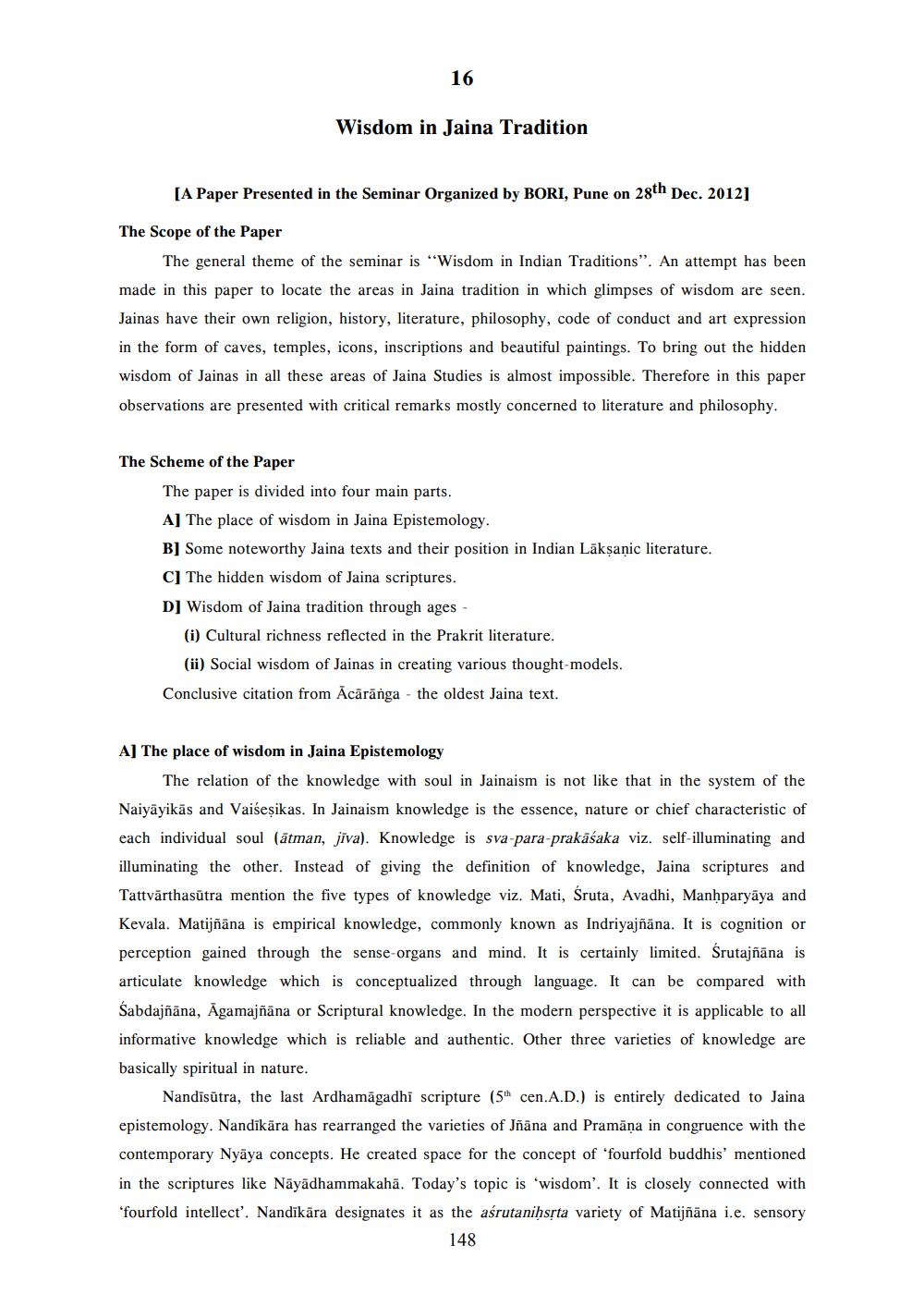________________
16
Wisdom in Jaina Tradition
[A Paper Presented in the Seminar Organized by BORI, Pune on 28th Dec. 2012]
The Scope of the Paper
The general theme of the seminar is “Wisdom in Indian Traditions". An attempt has been made in this paper to locate the areas in Jaina tradition in which glimpses of wisdom are seen. Jainas have their own religion, history, literature, philosophy, code of conduct and art expression in the form of caves, temples, icons, inscriptions and beautiful paintings. To bring out the hidden wisdom of Jainas in all these areas of Jaina Studies is almost impossible. Therefore in this paper observations are presented with critical remarks mostly concerned to literature and philosophy.
The Scheme of the Paper
The paper is divided into four main parts. A] The place of wisdom in Jaina Epistemology. B] Some noteworthy Jaina texts and their position in Indian Lākşanic literature. C] The hidden wisdom of Jaina scriptures. D] Wisdom of Jaina tradition through ages -
(i) Cultural richness reflected in the Prakrit literature.
(ii) Social wisdom of Jainas in creating various thought-models. Conclusive citation from Acārānga - the oldest Jaina text.
A] The place of wisdom in Jaina Epistemology
The relation of the knowledge with soul in Jainaism is not like that in the system of the Naiyāyikās and Vaišeşikas. In Jainaism knowledge is the essence, nature or chief characteristic of each individual soul (ātman, jīva). Knowledge is sva-para-prakāśaka viz. self-illuminating and illuminating the other. Instead of giving the definition of knowledge, Jaina scriptures and Tattvārthasūtra mention the five types of knowledge viz. Mati, Śruta, Avadhi, Manhparyāya and Kevala. Matijñāna is empirical knowledge, commonly known as Indriyajñāna. It is cognition or perception gained through the sense organs and mind. It is certainly limited. Srutajñāna is articulate knowledge which is conceptualized through language. It can be compared with Sabdajñāna, Agamajñāna or Scriptural knowledge. In the modern perspective it is applicable to all
informative knowledge which is reliable and authentic. Other three varieties of knowledge are
basically spiritual in nature.
Nandīsūtra, the last Ardhamāgadhi scripture (5th cen.A.D.) is entirely dedicated to Jaina epistemology. Nandikāra has rearranged the varieties of Jñāna and Pramāņa in congruence with the contemporary Nyāya concepts. He created space for the concept of 'fourfold buddhis' mentioned in the scriptures like Nāyādhammakahā. Today's topic is 'wisdom'. It is closely connected with *fourfold intellect'. Nandikāra designates it as the aśrutanihsrta variety of Matijñāna i.e. sensory
148




